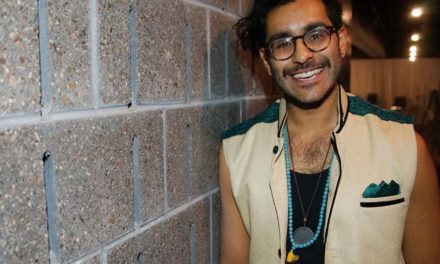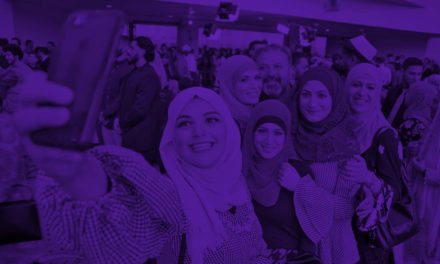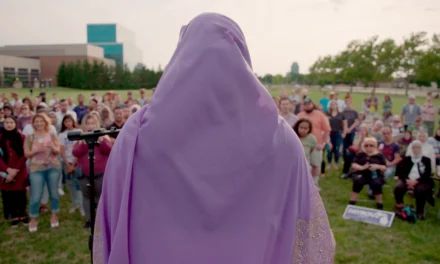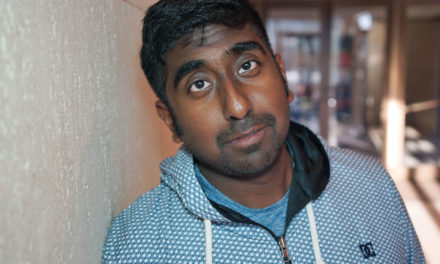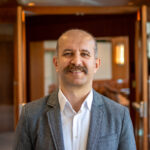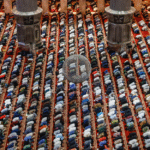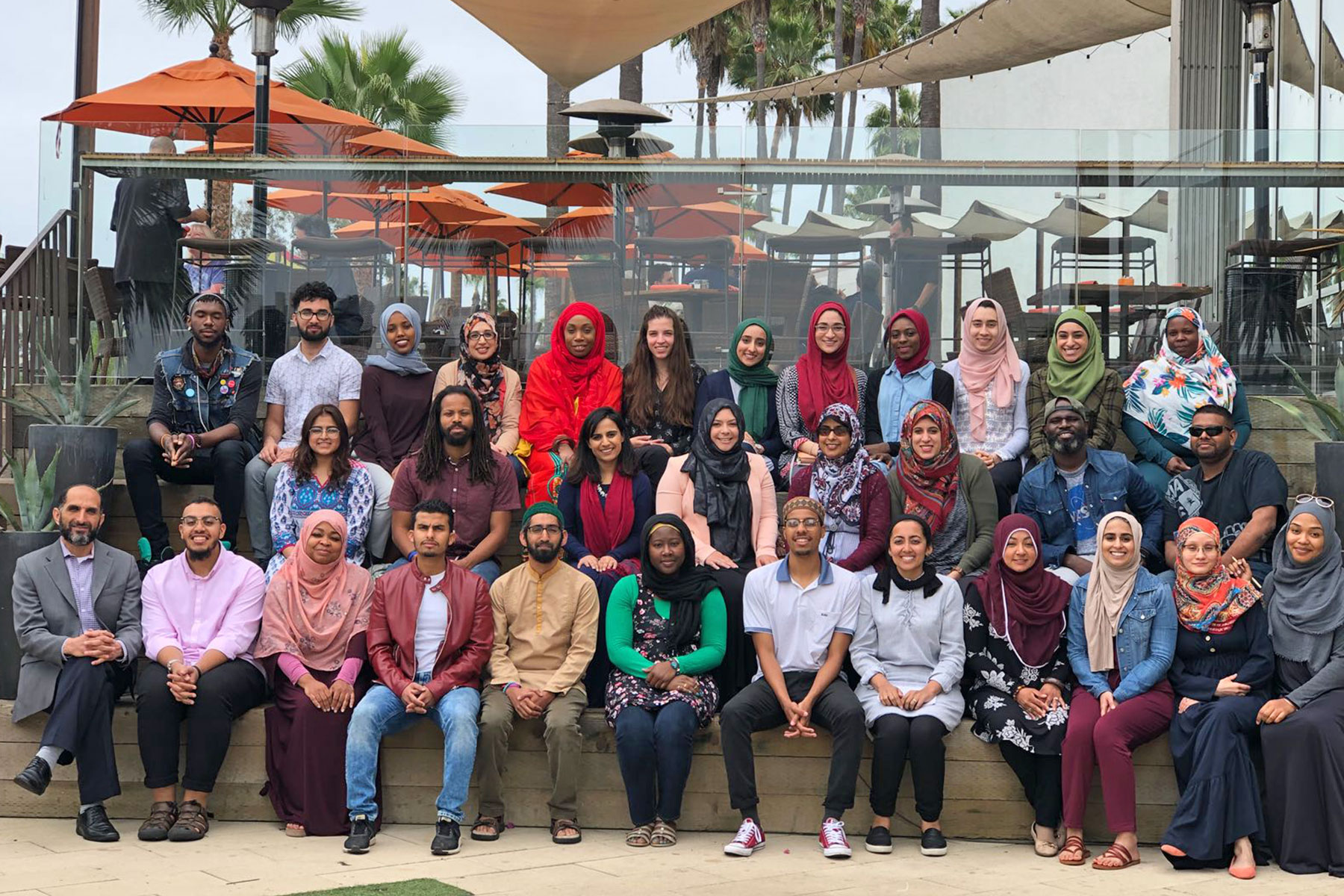
“There’s no culture of self-improvement without the culture of self-reflection.”
– The Definite Dozen quoted by Mohamed Taleb
In the wake of the Supreme Court ruling on President Trump’s Muslim Ban, young Muslim leaders from all over the country met for a four day training in Los Angeles, California to start the Muslim Power Building Project. The effort is a collaboration between several groups, Faith In Action (formerly PICO National Network), LA Voice, The Inner-City Muslim Action Network (IMAN), MPower Change, and Muslim Anti-Racism Collaborative (MuslimARC).
The goal of the project is to harness the strengths and resources of these organizations to facilitate a comprehensive community-organizing and leadership development program for Muslims nationwide. Especially today, that work is more important than ever as anti-Muslim rhetoric, hate crimes, and Islamophobia intensifies. A stronger organizing infrastructure will help protect Muslims and strengthen a progressive faith voice. It also will deepen society’s understanding of Muslims and help us strengthen ties across faith and secular communities.
A main component of the project involved selecting applicants for the first training cohort, who have less than three years of experience working or volunteering with community-based organizations in Muslim communities. As part of the experience, individuals were given the opportunity to enter a mentorship process with organizers that have more than three years of experience for the next six months.
Milwaukee Muslim Women’s Coalition’s Program Manager, Amanda Ali, a 23-year old UW-Madison graduate was selected from hundreds of applicants to be included in the first ever cohort of the Muslim Power Building Project. She joined 30 other Muslim leaders from Michigan, Illinois, California, Ohio, and New Jersey for the training program.
“The Muslim Power Building Project is needed now more than ever. It’s providing an opportunity to learn organizational tools and apply it to empower myself and my Muslim community when we are living in a time of increasing anti-Muslim rhetoric,” said Ali. “This project is lifting Muslim organizers up and saying we can create the world as it should be with more love, compassion, equality and justice for all.”
Her mentor, Sara Hamdan, is a Chicagoland native with roots in Palestine and a graduate of the University of Illinois at Chicago with a BA in Anthropology. She is currently pursuing an MA at the University of Chicago’s School of Social Service Administration. Since 2014, Sara has been with Inner-City Muslim Action Network (IMAN) managing the Corner Store Campaign, which focuses on racial justice and equity through the lens of food. Together, Ali and Hamdan hope to impact the well-being of all marginalized groups.
“The Muslim Power Building Project is an exciting and, in many ways, ground-breaking effort to bring together organizers in the American Muslim community to build upon the legacy of those who paved the way to this current moment,” said Hamdan. “Ultimately, MPBP is about building power by equipping organizers with skills and guidance to lead in their own communities and contribute to a larger, shared vision of what it means to be Muslim in America. I feel honored to share space with Amanda and the rest of the cohort throughout this process and beyond.”
Organizers of the training included Sarah Jawaid, Director of Special Projects at LA Voice; Shamar Hemphill, Senior Organizer and Director of the Inner-City Muslim Action Network’s Campaigns and Policy Work; Ishraq Ali, Organizing Director of MPower Change; Margari Hill, Co-founder and Managing Director of the Muslim Anti-Racism Collaborative (MuslimARC); Sara Hamdan, Manager of the Corner Store Campaign at Inner-City Muslim Action Network (IMAN); Hazel Gómez, Community Organizer for Dream for Detroit; and Sukaina Hussain, faith-based Community Organizer with Faith in the Valley.
Elevating the skills and expanding the network of American Muslims at the table represents a sustainable strategy for building and strengthening the existing movement. It also helps create pathways and systems that the community needs to ensure that our work continues indefinitely. This increased capacity will have a positive impact on Muslim Americans’ ability to rally around policy measures that would have a favorable impact on the future well-being of all marginalized groups, including youth, people of color, low-income communities, and many others.
“One of the major tenets of Islam includes social justice. This project is about living out our faith and building collective power while connecting American Muslim communities of all colors to a shared vision of justice, and giving them the tools to live into that vision,” said Jawaid.
Ali hopes to put her organizational skills to use in local Wisconsin communities by strengthening the relationships between Muslim and Non-Muslim individuals, and building bridges of interfaith dialogue. With that, the Muslim community will be able to address and tackle misconceptions and biases portrayed through the media and from a lack of accurate information.
